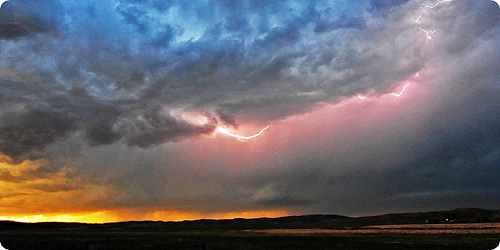Climate change is resulting in frequent weather events and disasters, impacting vulnerable communities across the planet. Extreme weather calamities adversely hit lives and livelihoods and have the potential to reverse development gains. Talking about the South Pacific, in the last three years, Fiji experienced 6 cyclones whereas Vanuatu and Tonga had 4 each. Some of these cyclones reached category 5 levels, resulting in huge losses to businesses and families. The Government had limited sources to cope against these disasters, besides repurposing national budgets, moving funds from development to disaster relief, external and internal borrowing or seeking donor assistance.
To curb these challenges, the United Nations Capital Development Fund (UNCDF) implemented the “Developing Climate Disaster Risk Financing Framework and Parametric insurance” project in 2021 to provide post-disaster relief to low-income households and communities in Pacific Island countries.
WRMS collaborated with UNCDF as a technical partner in this multi-year project to improve climate change resilience and financial preparedness of South Pacific Islands against natural hazards like cyclonic & high rainfall events.
Project Snapshot
Launched In: August 2021
Coverage for: heavy wind and rainfall
Targeted beneficiaries: sugarcane, rice and copra farmers, fishers and market vendors
Annual total insured: USD 460 (per policyholder)
Annual premium: USD 46 (less than USD 1 per week)
Cover period: 12 months
Policyholders: 1,380 households (approximately 6,000 individuals)
Gender balance: 32% of policyholders are women
Future target: Over 85,000 customers by 2025
WRMS Intervention
WRMS was brought on board by UNCDF to provide technical partner to perform weather index modelling and development of appropriate and affordable climate risk insurance products targeting the agriculture, fisheries, tourism and retail sectors. It was the Pacific region’s first index based microinsurance product against cyclonic storm and high rainfall designed after studying existing data sources available for the region.
WRMS worked closely with the project team to develop the capacity of local insurance service providers in Fiji to deliver these insurance solutions to the local population.
Project Achievements & Impact
The project covered 1,388 households in the first year of its operation of which 32 per cent were women. Since its launch, enrolment in the parametric
insurance pilotscheme has largely included smallholder farmers, fishers, market vendors and micro business owners. By the end of 2022, the project
has over 2,300 registered customers.
The project obtained VAT-exemption from the Fijian government which could make premiums more affordable.
11,747 people were reached with Climate Disaster Risk Financing Instruments training, advocacy and awareness by project partners.
WRMS capacity building training workshops for the project partners and stakeholders resulted in better understanding of the product among the
beneficiaries, thus, maximizing the impact of the intervention.
Project Expansion
After the successful implementation of the project and converging the learnings from Fiji, UNCDF has now expanded the insurance solution in Tonga and Vanuatu, two other vulnerable small island developing states. A big win from this project is the VAT exemption announced by the Government of Fiji on the premiums of all climate and disaster risk micro-insurance products, to support low-income households to build financial resilience through increased accessibility. This innovation has the potential of being replicated in not only other Pacific Island countries but in similar global markets as well.
About WRMS
WRMS started its risk management journey in 2005 by creating a full-stack digital-first solution to help insurers and reinsurers understand, quantify, and manage the risks associated with weather events and crop yields. As a pioneer, WRMS has bagged many world firsts in the parametric insurance space like designing and implementing the first-ever parametric insurance solution for countries like Fiji, Indonesia, Haiti, Bangladesh,India and Cambodia to name a few. The company also served diverse agri value chain players like seed companies, contract farming companies, and agri-input companies with their very first value-chain-enabled bundled index insurance solutions.

